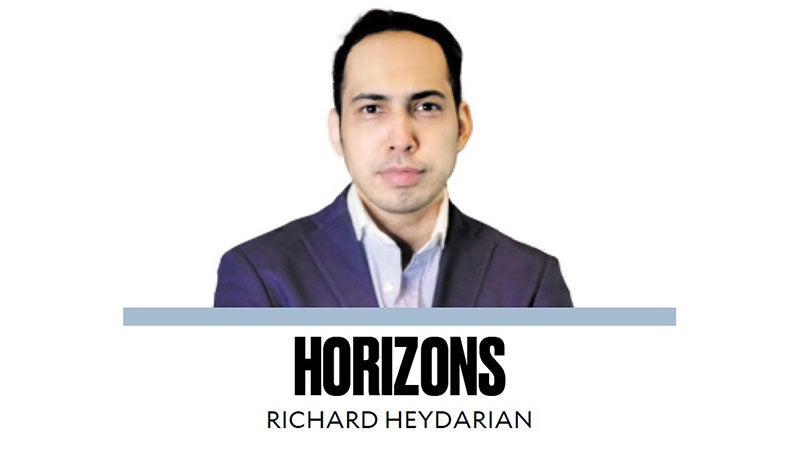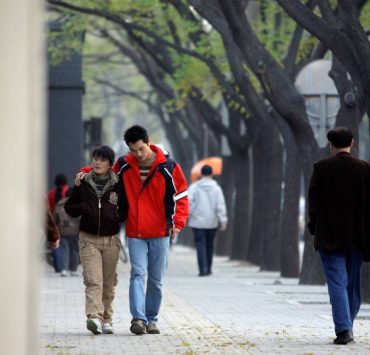Risa Hontiveros: Road to presidency?

The spirit of change is in the air. And new political horizons are emerging before our eyes. The past two years saw President Marcos emerging as an “unlikely reformer”: In a bid to rebrand his notorious family’s image, the scion and namesake son of the late dictatorship gradually dismantled the worst aspects of Rodrigo Duterte’s legacy. He recalibrated a brutal drug war in favor of a more sane and humane approach, although there are still reports of extrajudicial killings. He rolled back the manic Red-tagging of his predecessor against progressive groups; some progressive legislators even admitted to having a relatively cordial relationship with the current regime. When asked about the current congressional leadership, ACT Teachers party list Rep. France Castro memorably said: “Mas sweet sila ngayon” (They are friendlier these days).
Meanwhile, Mr. Marcos has managed to build a broadly civil, if not friendly, relationship with independent media. Unlike Duterte, who orchestrated the shutdown and legal harassment of leading media networks, he has rarely attacked mainstream media. He has not begrudged those who have questioned either his competence or moral standing to become the country’s president. Above all, Mr. Marcos has adopted a tough, principled, and pragmatic approach to the West Philippine Sea disputes, which eerily echoes the stance of reformist presidents of the past years.
But the incumbent is far from an ideal leader. If anything, he has yet to come clean on the human rights and corruption legacy of his late father. Nor has he instituted any significant anti-corruption reforms or transformative economic programs, yet. It remains to be seen whether he will indirectly aid the International Criminal Court once warrants of arrest are issued against the former president and his cronies. His actions on the issue will define his legacy.
Nevertheless, the Marcos II years opened the space for truly progressive alternatives, most notably Sen. Risa Hontiveros. Undoubtedly, the opposition faces an uphill struggle in the upcoming elections. So much so that an open debate has broken out between top opposition leaders. In the past weeks, liberal stalwarts, most notably, former vice president Leni Robredo have publicly and categorically rejected any new “UniTeam” with the administration in next year’s elections.
For Robredo, who explicitly ran on an anti-Marcos agenda in the 2016 and 2022 elections, any political alliance with the Marcos coalition would negate the very core convictions of the genuine opposition. In response, former senator Antonio Trillanes IV criticized “purists” in the liberal camp and emphasized the need for securing election victory before effectuating progressive change.
How much tactical flexibility is valid without undermining the strategic goal of democratic reform? The Leni camp fears that any form of alliance—even if liminal—with the administration would undermine the opposition’s very raison d’être. For Trillanes, the issue is straightforward: a limited, tactical partnership with the Marcos administration is a necessary evil—and will more than pay off by facilitating the return of genuine opposition into power. Without power, there can’t be positive change, tout court!
Enter Hontiveros, who has exhibited a remarkable synthesis of principled pragmatism in recent years. Instead of wallowing in defeatist and denialist discourse, she has tirelessly advocated for a reasoned and realistic progressive agenda, which has upended the Philippine political landscape. As an “iron lady” of the opposition, she has courageously held the cabal of Apollo Quiboloy, Alice Guo, and Harry Roque to account.
Humble and practical, she has also formed fruitful alliances with independent and centrist statesmen like Senators Sherwin “Win” Gatchalian and Rafael “Raffy” Tulfo. She has also rejected elitism and defeatist discourse by refusing to blame voters for the opposition’s electoral setback.
Meanwhile, her communications team has done wonders with increasingly catchy and compelling social media content—highlighting both her dynamic leadership as well as core convictions. For the first time in post-war Philippine history, an openly progressive political figure has emerged as a mainstream statesman and, potentially, a presidential candidate in 2028.
Otto Von Bismarck, arguably one of the greatest statesmen of the modern era, once aptly argued that “Politics is the art of the possible, the attainable—the art of the next best.” Well, Hontiveros shows that politics is also about creating new possibilities and pushing the frontiers of transformative change against all odds. Perhaps, the best is yet to come.
rheydarian@inquirer.com.ph


















